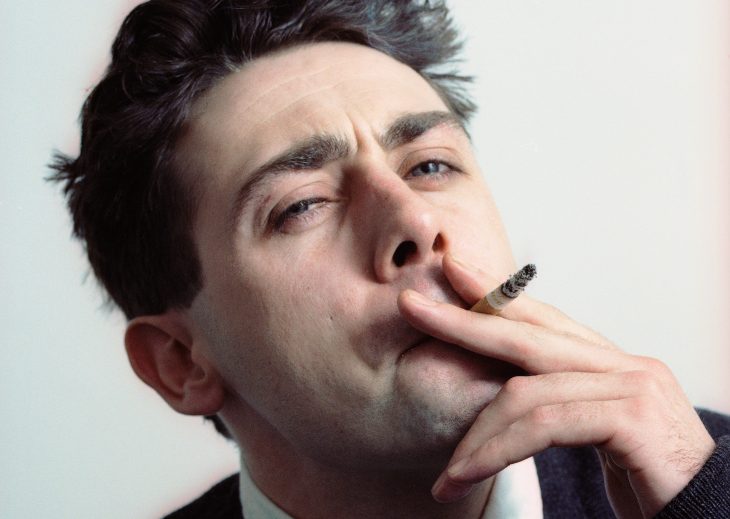Not many people can say they’ve transformed an entire art form, but Sean Hughes, who died yesterday, aged 51, did just that. His one man show, A One Night Stand With Sean Hughes, changed our preconceptions of what stand-up comedy should be – not by being strident or political, but by rejecting trite one-liners and letting his imagination run riot. I was lucky enough to see this ground-breaking show on its first run at the Edinburgh Festival in 1990. I’ve never seen anything quite like it, before or since.
In the summer of 1990, so-called alternative comedy was all the rage – but though the style of stand-up had shifted, the format had hardly altered. Traditional stand-up consisted of working class men in tuxedoes cracking lame jokes about the mother-in-law. Alternative stand-up consisted of middle class men in jeans and T-shirts cracking lame jokes about Margaret Thatcher. Then Hughes came along, and made a new generation of comics realise that stand-up could be so much more than that.
Rather than rattling off one-liners on a bare stage, Hughes did a one-man show on a theatrical set that was an intricate replica of his bedsit. What you got instead of gags was a stream-of-consciousness monologue. It was like stepping inside his head. It was surreal, self-deprecating and intensely autobiographical. Sure, it was self-indulgent, but because it was so funny no-one cared. It was an artful send-up of teenage and twenty-something angst, and it inspired countless up and coming comics to dramatise their own lives, instead of moaning about the Tories and the Poll Tax.
If Hughes had been an Englishman, this monologue might have seemed fey and whimsical, but his Irish upbringing gave it a bit of grit, and a classless, timeless air. Although it was full of laughs, it felt more literary than comedic – closer to Beckett than Ben Elton. Hughes was only 24 when he created this mini masterpiece, yet although he’d only been doing stand-up for a year or two, it felt utterly complete. It won the Perrier Award – the most prestigious prize for comedy in Edinburgh back then – and launched him on what looked set to be a glorious showbiz career.
It didn’t quite work out that way. Hughes did an absurdist series for Channel 4, and published various books of prose and poetry (of variable quality) but he never matched the careless charm of that breezy, brilliant debut. I saw him do stand-up numerous times thereafter, and interviewed him a few times too, but he always seemed rather awkward – a bit too intelligent and self-aware to revel in his celebrity, and never quite as happy as he did on that summer night in Edinburgh. Even on Never Mind The Buzzcocks, a harmless panel show, he often looked diffident and out of sorts. His comedy became less playful, and more pessimistic. ‘Life is shit, and the only things that get us through it are anticipation and afterthought,’ he said. ‘We all start off as sperm and end up as ash – our life amounts to jacking off into an ashtray.’ Yet at its best, his wit was joyous: ‘I thought when I was 41 I would be married with kids – well, to be honest I thought I would be married with weekend access.’ He didn’t marry. He had no children. Never a truer word…
In his later years he lost his boyish good looks and his elfin figure. Some newspapers reported he’d been suffering from cirrhosis of the liver. Yet ironically, in his heyday, his boy-band appearance held him back. He attracted a teenybopper fanbase, which he never really relished. Maybe he would have been more content as a poet or a playwright, an observer in the wings rather than a performer in the spotlight. A One Night Stand With Sean Hughes inspired a lot of good shows (and an awful lot of bad ones) but no performer has surpassed it. And today no comedian in Britain – or in Ireland, for that matter – dismisses stand-up comedy as just a string of hand-me-down jokes.
William Cook is the author of The Comedy Store – The Club That Changed British Comedy (Little, Brown)






Comments